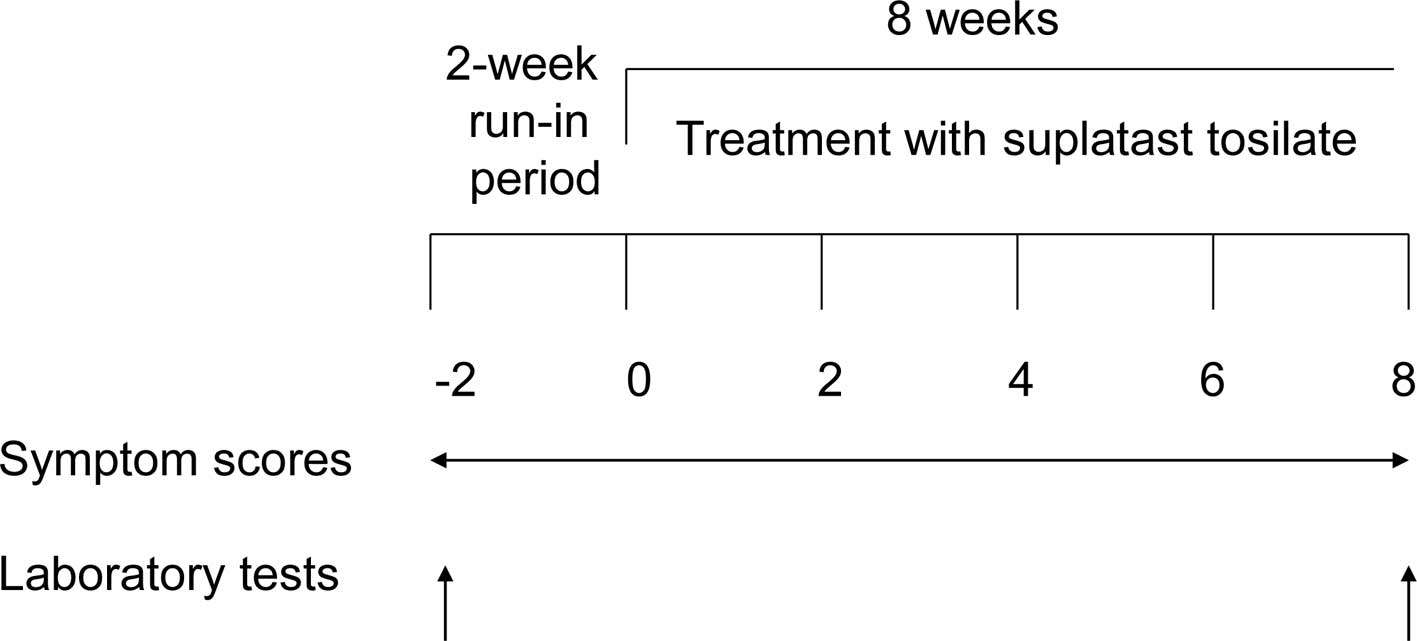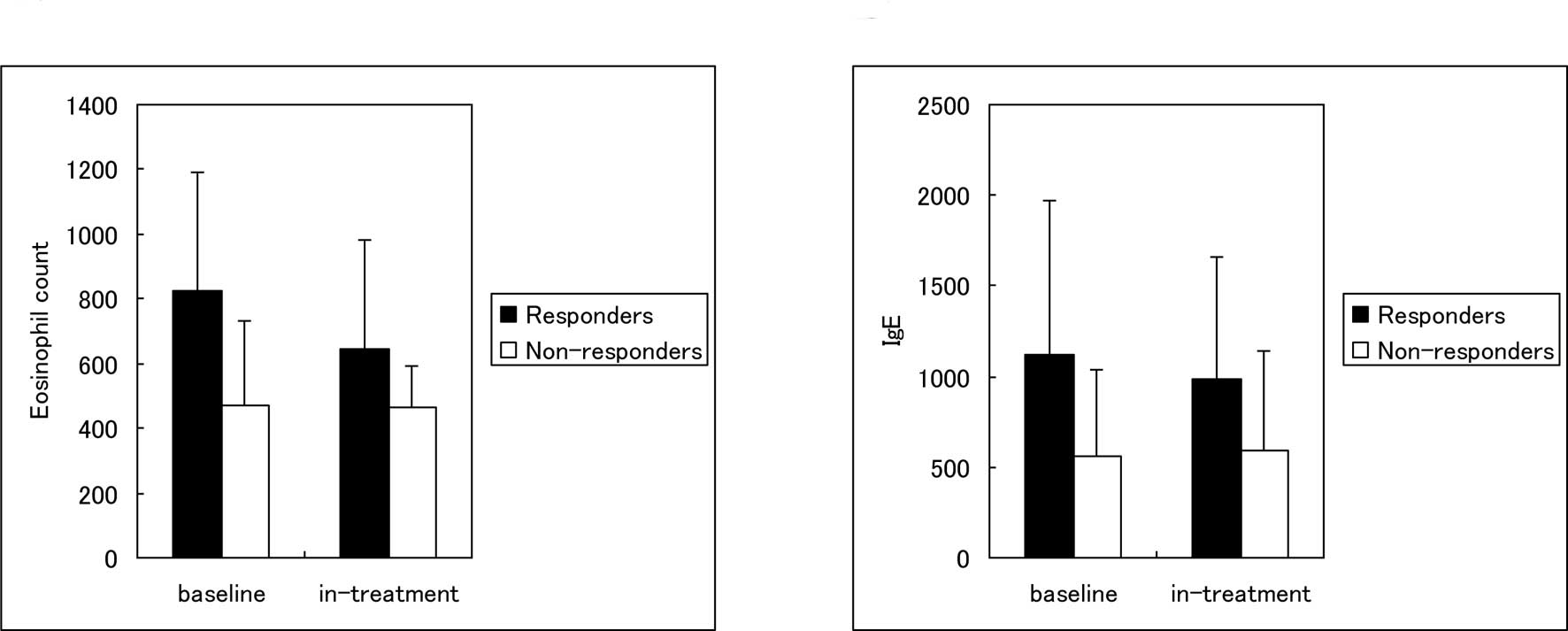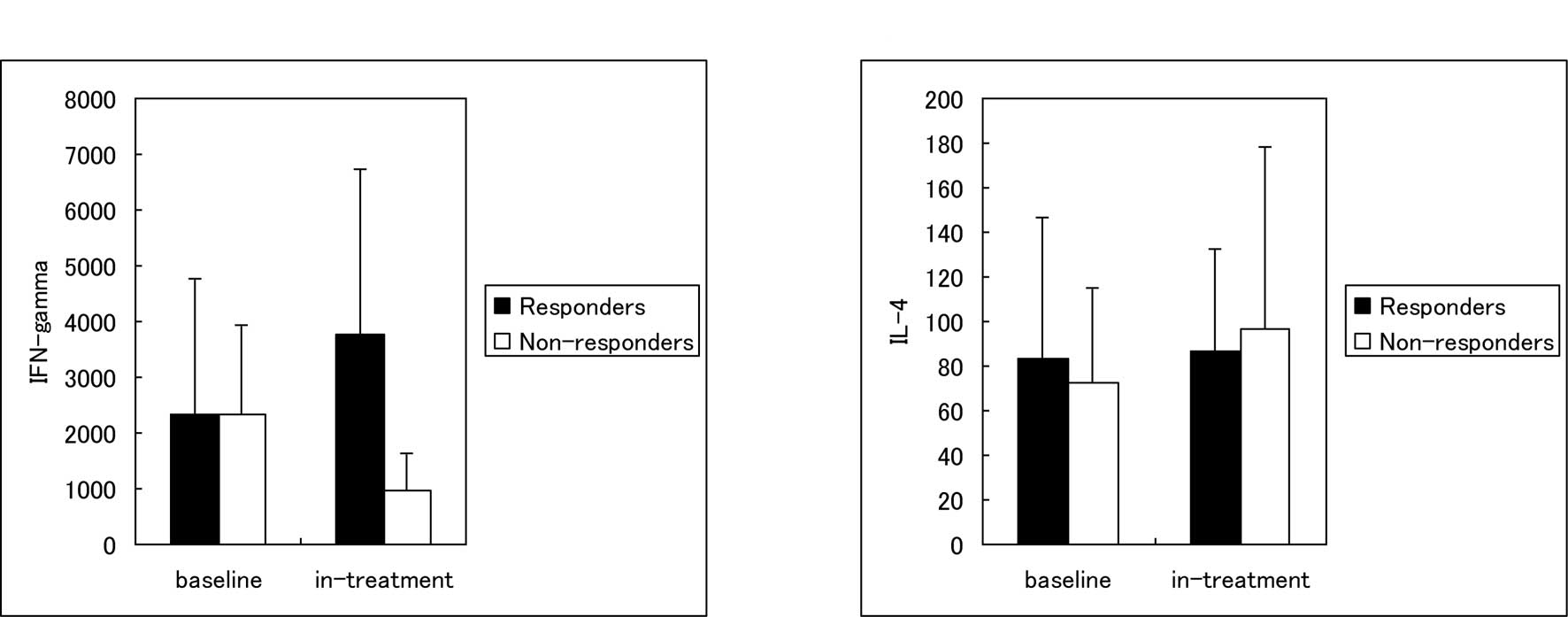|
1.
|
Kondo N, Matsui E, Kaneko H, Kato Z, Fukao
T, Teramoto T, Shikano H, Aoki M, Onishi H, Tatebayashi K, Omoya K,
Kondo M, Matsukuma E, Kasahara K and Morimoto N: Genetic defects in
downregulation of IgE production and a new genetic classification
of atopy. Allergol Int. 53:77–85. 2004. View Article : Google Scholar
|
|
2.
|
Mitsuyasu H, Izuhara K, Mao XQ, Gao PS,
Arinobu Y, Enomoto T, Kawai M, Sasaki S, Dake Y, Hamasaki N,
Shirakawa T and Hopkin JM: Ile50Val variant of IL4R alpha
upregulates IgE synthesis and associates with atopic asthma. Nat
Genet. 19:119–120. 1998. View
Article : Google Scholar : PubMed/NCBI
|
|
3.
|
Heinzmann A, Mao XQ, Akaiwa M, Kreomer RT,
Gao PS, Ohshima K, Umeshita R, Abe Y, Braun S, Yamashita T, Roberts
MH, Sugimoto R, Arima K, Arinobu Y, Yu B, Kruse S, Enomoto T, Dake
Y, Kawai M, Shimazu S, Sasaki S, Adra CN, Kitaichi M, Inoue H,
Yamauchi K, Tomichi N, Kurimoto F, Hamasaki N, Hopkin JM, Izuhara
K, Shirakawa T and Deichmann KA: Genetic variants of IL-13
signalling and human asthma and atopy. Hum Mol Genet. 9:549–559.
2000. View Article : Google Scholar : PubMed/NCBI
|
|
4.
|
Tatebayashi K, Matsui E, Kaneko H, Fukao
T, Kasahara K and Kondo N: IL-12B promoter polymorphism associated
with asthma and IL-12B transcriptional activity. Allergol Int.
54:451–459. 2005. View Article : Google Scholar
|
|
5.
|
Yoshikawa K, Matsui E, Kaneko H, Fukao T,
Inoue R, Teramoto T, Shinoda S, Fukutomi O, Aoki M, Kasahara K and
Kondo N: A novel single-nucleotide substitution, Glu 4 Lys, in the
leukotriene C4 synthase gene associated with allergic diseases. Int
J Mol Med. 16:827–831. 2005.PubMed/NCBI
|
|
6.
|
Aoki M, Matsui E, Kaneko H, Inoue R, Fukao
T, Watanabe M, Teramoto T, Kato Z, Suzuki K, Suzuki Y, Kasahara K
and Kondo N: A novel single-nucleotide substitution, Leu 467 Pro,
in the interferon-γ receptor 1 gene associated with allergic
diseases. Int J Mol Med. 12:185–191. 2003.PubMed/NCBI
|
|
7.
|
Tan S, Hall IP, Dewar J, Dow E and
Lipworth B: Association between beta 2-adrenoceptor polymorphism
and susceptibility to bronchodilator desensitisation in moderately
severe stable asthmatics. Lancet. 350:995–999. 1997. View Article : Google Scholar : PubMed/NCBI
|
|
8.
|
Sampson AP, Siddiqui S, Buchanan D,
Howarth PH, Holgate ST, Holloway JW and Sayers I: Variant LTC(4)
synthase allele modifies cysteinyl leukotriene synthesis in
eosinophils and predicts clinical response to zafirlukast. Thorax.
55(Suppl 2): 28–31. 2000. View Article : Google Scholar : PubMed/NCBI
|
|
9.
|
Asano K, Shiomi T, Hasegawa N, Nakamura H,
Kudo H, Matsuzaki T, Hakuno H, Fukunaga K, Suzuki Y, Kanazawa M and
Yamaguchi K: Leukotriene C4 synthase gene A(-444)C polymorphism and
clinical response to a CYS-LT(1) antagonist, pranlukast, in
Japanese patients with moderate asthma. Pharmacogenetics.
12:565–570. 2002. View Article : Google Scholar : PubMed/NCBI
|
|
10.
|
Tantisira KG, Hwang ES, Raby BA, Silverman
ES, Lake SL, Richter BG, Peng SL, Drazen JM, Glimcher LH and Weiss
ST: TBX21: a functional variant predicts improvement in asthma with
the use of inhaled corticosteroids. Proc Natl Acad Sci USA.
101:18099–18104. 2004. View Article : Google Scholar : PubMed/NCBI
|
|
11.
|
Hall JG, Eis PS, Law SM, Reynaldo LP,
Prudent JR, Marshall DJ, Allawi HT, Mast AL, Dahlberg JE,
Kwiatkowski RW, de Arruda M, Neri BP and Lyamichev VI: Sensitive
detection of DNA polymorphisms by the serial invasive signal
amplification reaction. Proc Natl Acad Sci USA. 97:8272–8277. 2000.
View Article : Google Scholar : PubMed/NCBI
|
|
12.
|
Shim JJ, Dabbagh K, Takeyama K, Burgel PR,
Dao-Pick TP, Ueki IF and Nadel JA: Suplatast tosilate inhibits
goblet-cell metaplasia of airway epithelium in sensitized mice. J
Allergy Clin Immunol. 105:739–745. 2000. View Article : Google Scholar : PubMed/NCBI
|
|
13.
|
Suwaki T, Agrawal DK and Townley RG:
Modification of eosinophil function by suplatast tosilate (IPD), a
novel antiallergic drug. Int Immunopharmacol. 1:2163–2171. 2001.
View Article : Google Scholar : PubMed/NCBI
|
|
14.
|
Espinosa K, Bossé Y, Stankova J and
Rola-Pleszczynski M: CysLT1 receptor upregulation by TGF-beta and
IL-13 is associated with bronchial smooth muscle cell proliferation
in response to LTD4. J Allergy Clin Immunol. 111:1032–1040. 2003.
View Article : Google Scholar : PubMed/NCBI
|

















